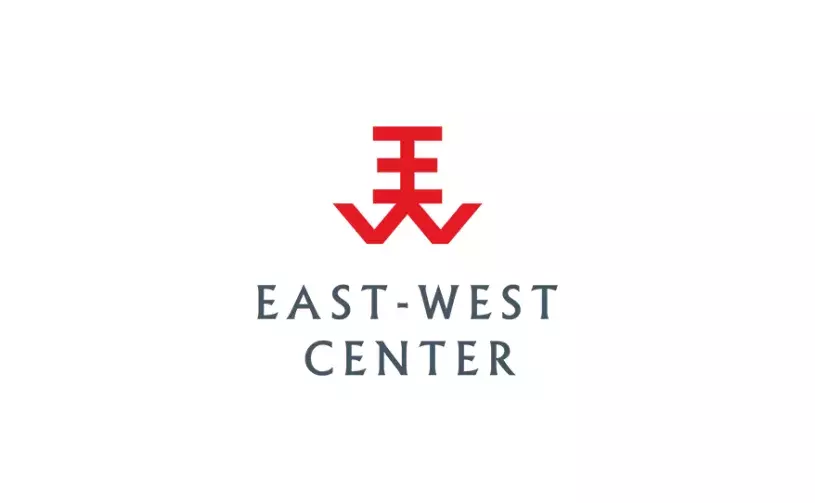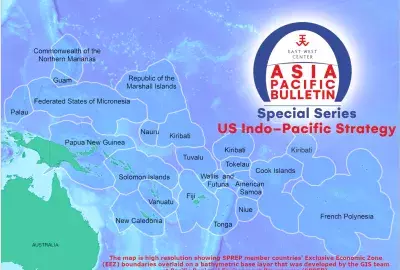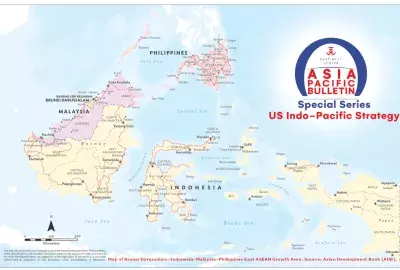Error message

Kitti Prasirtsuk, Ph.D., a Professor of International Relations at Thammasat University, explains that despite strained U.S.-Thai relations over the past decade, the Cobra Gold (CG) military exercise “equates to a win for both sides” and “is the cornerstone of the US-Thailand alliance, representing a major bond between the two nations in their post-Vietnam War relations.”
As President Biden is strengthening alliance cooperation, the administration will likely revisit the U.S.-Thailand alliance. However, it is important to consider how the context for the alliance has changed.
Context
While U.S.-China competition is not new, it has significantly intensified in recent years. China has more global and regional influence due to its increasing economic, military, and technological prowess. China is now the largest trading partner of all Association of Southeast Asian Nations (ASEAN) countries, except Laos. Under Xi Jinping, China has sought to expand its influence in ASEAN through new initiatives, the most pertinent are the Belt and Road Initiative (BRI), the Asia Infrastructure Investment Bank (AIIB), and the Lancang-Mekong Cooperation (LMC). China has begun to pursue its territorial claims more assertively, steadily heightening tensions on the South China Sea.
Trade and technology wars are a new manifestation of U.S.-China tensions and presents opportunities and challenges for ASEAN countries, including Thailand. Supply chain diversification away from China is poised to direct new investment to many ASEAN countries. Meanwhile, the tech war may force a difficult choice on the region, regarding 5G/6G. Using China-based Huawei risks incompatibility with the Western-based equipment. It may be imperative to have multiple systems assigned to different purposes, which will be very costly. Moreover, COVID-19 vaccine and recovery assistance has become yet another arena for US-China competition.
Concerns
Biden’s reengagement with the region has brought new concerns to the fore among ASEAN countries. The response of ASEAN members to the creation of AUKUS have ranged from welcome to opposition. The international fallout surrounding France’s exclusion from the arrangement, despite sending military vessels to the South China Sea at Biden’s behest, casts doubt over U.S. ability to coordinate broad multilateral action in the Indo-Pacific. Furthermore, the U.S. withdrawal from Afghanistan is reminiscent of America’s exit from Vietnam. These twin incidents undermine America’s reputation as a reliable partner.
Over the past decade, limited engagement between the United States and Thailand has strained bilateral relations. Thailand’s last Presidential visit was Obama in 2012. Vice President Kamala Harris also neglected to visit during her Southeast Asia tour. Biden’s omission of Thailand from the interim national security strategic guidance coupled with Trump’s suspension of Thailand’s status as a Generalized System of Preferences beneficiary seems to signal Thailand’s marginalization in U.S. Indo-Pacific policy. The latter happened despite that Thai Prime Minister Prayut called upon Trump at the White House in 2017. The United States is not solely to blame for the cooling in relations. Thailand has denied access to its air bases for some U.S. operations, such as NASA’s climate study in 2012 and humanitarian relief in the Rohingya crisis during 2017–18. Against this backdrop, what is the way forward? The answer lies in “Cobra Gold.”
Cobra Gold
Established in 1982 at the eve of the Cold War, Cobra Gold (CG), a major military exercise, is the cornerstone of the US-Thailand alliance, representing a major bond between the two nations in their post-Vietnam War relations. Even today, cooperation under CG equates to a win for both sides. CG undertakings serve to project U.S. presence and power in the region, in addition to enhancing regional military strategy and tropical terrain operations. Functionally, CG exposes Thai military to large-scale drills as well as updated knowledge, weaponry, and strategy. Symbolically, CG signifies strong ties between the two nations. These ties function as indirect leverage in Thailand’s relations with other powers.
CG is proven to be long-lasting and resilient, though threat perceptions have diverged since the Cold War. While U.S. threat perception is driven by strategic competition with China, Thailand continues to see China as an important partner. Thailand is focused on non-traditional and transnational threats, particularly disaster response, human trafficking, narcotics, and cybercrime. Despite these differences, CG still can serve the security interests for both parties. CG has been evolving to include peacekeeping, antiterrorism, and humanitarian assistance and disaster relief (HADR) operations. CG has expanded to include Indonesia, Malaysia, Singapore, Japan, Korea as participants and China, India, and Australia as observers. This multilateralization is helpful in fostering security collaboration and confidence building among participating countries.
Recommendations
1. Leverage Thailand as a key conduit for engaging other ASEAN countries. As a leading ASEAN member, Thailand can partner with the United States on a host of regional initiatives. Engaging ASEAN serves U.S. interests. Most ASEAN countries do not want to choose between Beijing and Washington. However, increased U.S. engagement would increase ASEAN’s leverage in its relations with China.
2. Engage Thailand and ASEAN on common security denominators. Non-traditional security threats, especially HADR, anti-terrorism, and cybercrime, represent fertile ground for increased cooperation.
3. Include more Lower Mekong countries in Cobra Gold as active participants, rather than observers. Vietnam has shown interest and the United States should push for its participation.
4. Rebrand Cobra Gold to signify its regional and multilateral scope, for example “Cobra Gold+.”
5. Institute a parallel track 1.5 academic-government conference during Cobra Gold to complement military exercises.
6. Engage beyond military relations. A high-level U.S. visit to Thailand is needed. Regionally, President Biden should attend the East Asia Summit (EAS) from this year onward.
7. Rejoin the Comprehensive and Progressive Trans-Pacific Partnership (CPTPP) to counterbalance the economic clout China has amassed through trade and investment initiatives.
8. Ensure that the Build Back Better World (B3W) initiative partners with Southeast Asian nations to provide tangible benefits, sooner rather than later.
9. Step up U.S. public diplomacy and exchange programs, particularly the Young Southeast Asian Leaders Initiative (YSEALI) and the International Visitor Leadership Program (IVLP). People-to-people connections are an important factor in enhancing U.S. soft power in the region.
10. Capitalize on soft power through engaging and advancing various cooperation schemes through public and private initiatives. The "U.S.-Thai Creative Partnership", inaugurated under Obama, is a good example of how U.S. soft power can undergird dynamic cooperation.
Ultimately, the way forward for the U.S.-Thai alliance hinges on cultivating influence, which is not necessarily a zero-sum game. China will remain influential in Southeast Asia. However, the region welcomes U.S. engagement with Thailand and ASEAN, as a much-needed counterbalance to China’s international clout. In this effort, Washington needs to be more subtle and understanding. It will be paramount to avoid the pitfalls of allowing security concerns to dominate bilateral relations in Southeast Asia, permitting U.S. domestic issues to derail engagement, and failing to adequately resource regional initiatives. Despite these challenges, the U.S.-Thai alliance constitutes a critical avenue for U.S. engagement of the Indo-Pacific. If the alliance is not relegated to second-tier status, the two nations will surely find a way to continue their win-win cooperation.
Kitti Prasirtsuk, Ph.D., a Professor of International Relations at Thammasat University, explains that despite strained U.S.-Thai relations over the past decade, the Cobra Gold (CG) military exercise “equates to a win for both sides” and “is the cornerstone of the US-Thailand alliance, representing a major bond between the two nations in their post-Vietnam War relations.”
As President Biden is strengthening alliance cooperation, the administration will likely revisit the U.S.-Thailand alliance. However, it is important to consider how the context for the alliance has changed.
Context
While U.S.-China competition is not new, it has significantly intensified in recent years. China has more global and regional influence due to its increasing economic, military, and technological prowess. China is now the largest trading partner of all Association of Southeast Asian Nations (ASEAN) countries, except Laos. Under Xi Jinping, China has sought to expand its influence in ASEAN through new initiatives, the most pertinent are the Belt and Road Initiative (BRI), the Asia Infrastructure Investment Bank (AIIB), and the Lancang-Mekong Cooperation (LMC). China has begun to pursue its territorial claims more assertively, steadily heightening tensions on the South China Sea.
Trade and technology wars are a new manifestation of U.S.-China tensions and presents opportunities and challenges for ASEAN countries, including Thailand. Supply chain diversification away from China is poised to direct new investment to many ASEAN countries. Meanwhile, the tech war may force a difficult choice on the region, regarding 5G/6G. Using China-based Huawei risks incompatibility with the Western-based equipment. It may be imperative to have multiple systems assigned to different purposes, which will be very costly. Moreover, COVID-19 vaccine and recovery assistance has become yet another arena for US-China competition.
Concerns
Biden’s reengagement with the region has brought new concerns to the fore among ASEAN countries. The response of ASEAN members to the creation of AUKUS have ranged from welcome to opposition. The international fallout surrounding France’s exclusion from the arrangement, despite sending military vessels to the South China Sea at Biden’s behest, casts doubt over U.S. ability to coordinate broad multilateral action in the Indo-Pacific. Furthermore, the U.S. withdrawal from Afghanistan is reminiscent of America’s exit from Vietnam. These twin incidents undermine America’s reputation as a reliable partner.
Over the past decade, limited engagement between the United States and Thailand has strained bilateral relations. Thailand’s last Presidential visit was Obama in 2012. Vice President Kamala Harris also neglected to visit during her Southeast Asia tour. Biden’s omission of Thailand from the interim national security strategic guidance coupled with Trump’s suspension of Thailand’s status as a Generalized System of Preferences beneficiary seems to signal Thailand’s marginalization in U.S. Indo-Pacific policy. The latter happened despite that Thai Prime Minister Prayut called upon Trump at the White House in 2017. The United States is not solely to blame for the cooling in relations. Thailand has denied access to its air bases for some U.S. operations, such as NASA’s climate study in 2012 and humanitarian relief in the Rohingya crisis during 2017–18. Against this backdrop, what is the way forward? The answer lies in “Cobra Gold.”
Cobra Gold
Established in 1982 at the eve of the Cold War, Cobra Gold (CG), a major military exercise, is the cornerstone of the US-Thailand alliance, representing a major bond between the two nations in their post-Vietnam War relations. Even today, cooperation under CG equates to a win for both sides. CG undertakings serve to project U.S. presence and power in the region, in addition to enhancing regional military strategy and tropical terrain operations. Functionally, CG exposes Thai military to large-scale drills as well as updated knowledge, weaponry, and strategy. Symbolically, CG signifies strong ties between the two nations. These ties function as indirect leverage in Thailand’s relations with other powers.
CG is proven to be long-lasting and resilient, though threat perceptions have diverged since the Cold War. While U.S. threat perception is driven by strategic competition with China, Thailand continues to see China as an important partner. Thailand is focused on non-traditional and transnational threats, particularly disaster response, human trafficking, narcotics, and cybercrime. Despite these differences, CG still can serve the security interests for both parties. CG has been evolving to include peacekeeping, antiterrorism, and humanitarian assistance and disaster relief (HADR) operations. CG has expanded to include Indonesia, Malaysia, Singapore, Japan, Korea as participants and China, India, and Australia as observers. This multilateralization is helpful in fostering security collaboration and confidence building among participating countries.
Recommendations
1. Leverage Thailand as a key conduit for engaging other ASEAN countries. As a leading ASEAN member, Thailand can partner with the United States on a host of regional initiatives. Engaging ASEAN serves U.S. interests. Most ASEAN countries do not want to choose between Beijing and Washington. However, increased U.S. engagement would increase ASEAN’s leverage in its relations with China.
2. Engage Thailand and ASEAN on common security denominators. Non-traditional security threats, especially HADR, anti-terrorism, and cybercrime, represent fertile ground for increased cooperation.
3. Include more Lower Mekong countries in Cobra Gold as active participants, rather than observers. Vietnam has shown interest and the United States should push for its participation.
4. Rebrand Cobra Gold to signify its regional and multilateral scope, for example “Cobra Gold+.”
5. Institute a parallel track 1.5 academic-government conference during Cobra Gold to complement military exercises.
6. Engage beyond military relations. A high-level U.S. visit to Thailand is needed. Regionally, President Biden should attend the East Asia Summit (EAS) from this year onward.
7. Rejoin the Comprehensive and Progressive Trans-Pacific Partnership (CPTPP) to counterbalance the economic clout China has amassed through trade and investment initiatives.
8. Ensure that the Build Back Better World (B3W) initiative partners with Southeast Asian nations to provide tangible benefits, sooner rather than later.
9. Step up U.S. public diplomacy and exchange programs, particularly the Young Southeast Asian Leaders Initiative (YSEALI) and the International Visitor Leadership Program (IVLP). People-to-people connections are an important factor in enhancing U.S. soft power in the region.
10. Capitalize on soft power through engaging and advancing various cooperation schemes through public and private initiatives. The "U.S.-Thai Creative Partnership", inaugurated under Obama, is a good example of how U.S. soft power can undergird dynamic cooperation.
Ultimately, the way forward for the U.S.-Thai alliance hinges on cultivating influence, which is not necessarily a zero-sum game. China will remain influential in Southeast Asia. However, the region welcomes U.S. engagement with Thailand and ASEAN, as a much-needed counterbalance to China’s international clout. In this effort, Washington needs to be more subtle and understanding. It will be paramount to avoid the pitfalls of allowing security concerns to dominate bilateral relations in Southeast Asia, permitting U.S. domestic issues to derail engagement, and failing to adequately resource regional initiatives. Despite these challenges, the U.S.-Thai alliance constitutes a critical avenue for U.S. engagement of the Indo-Pacific. If the alliance is not relegated to second-tier status, the two nations will surely find a way to continue their win-win cooperation.







